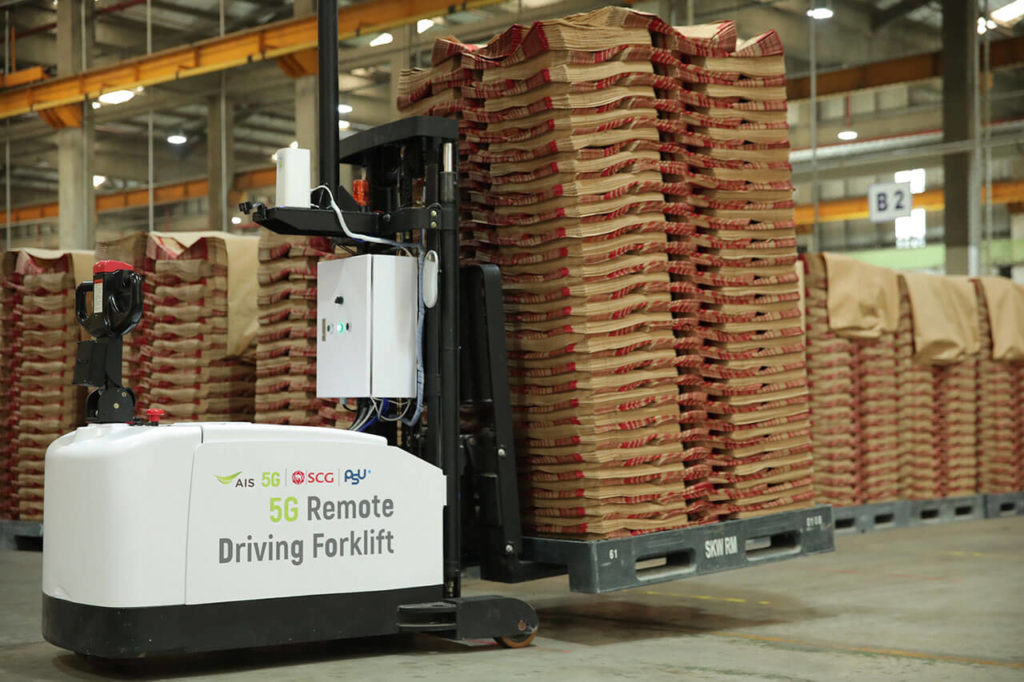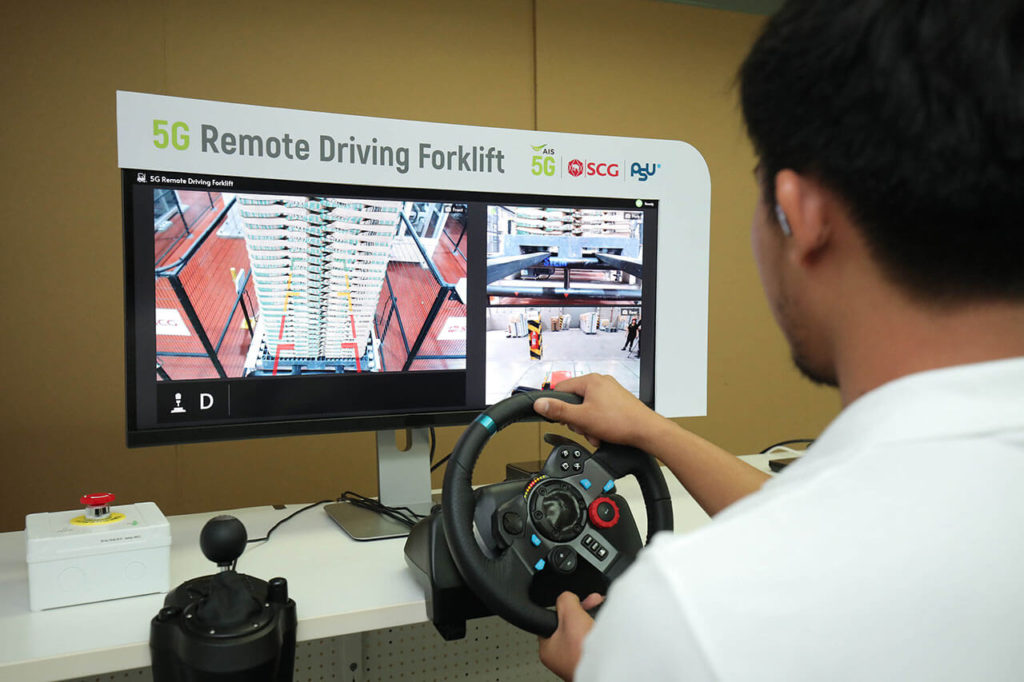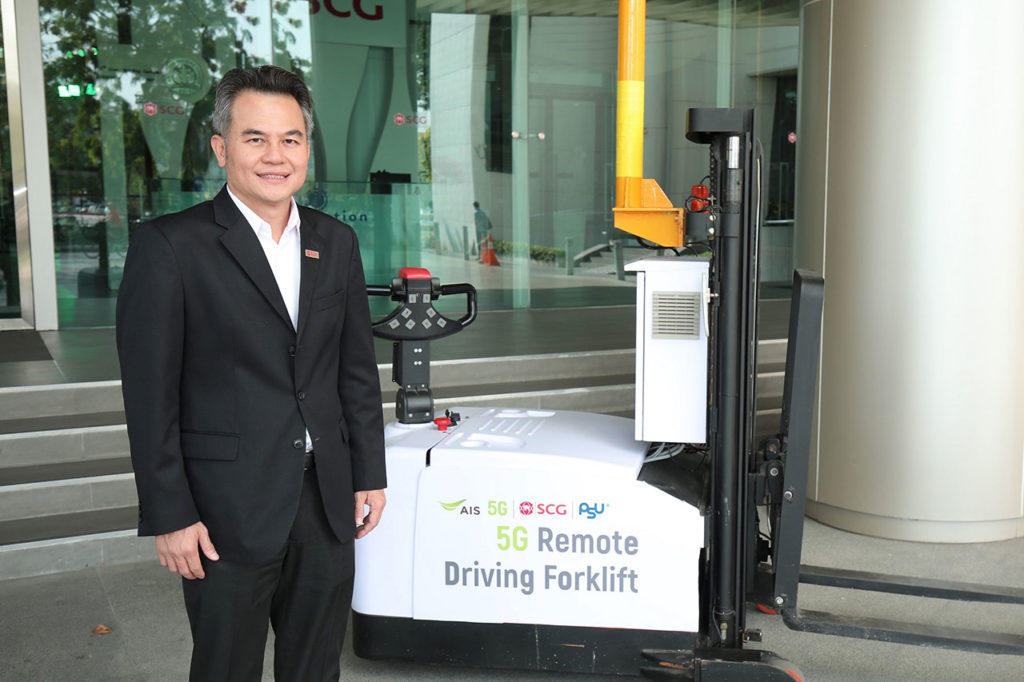
HIGHLIGHTS
- Three smart SCG’s business transformation frameworks are Smart Maintenance, Smart Laboratory, and Smart Dispatching.
- A collaborative network for sustainable growth will help efficiently and speedily transform the organization towards digital enablement.
- A sustainable transformation requires an overhaul of the entire manufacturing structure along with readiness and digital technology upskilling.
The disruption has resulted in an expanding role of technology in operations, prompting businesses to redesign and evolve themselves with an approach known as “Business Transformation” to deliver products and services that better meet the customers while maintaining sustainable growth in the 4.0 era.
“SCG” has transformed its organization intended to keep up with constant changes in the global business environment. To improve the business efficiencies and better meet customer needs, digital technologies, including mechanization, automation, robotics, and other digital technologies are introduced to transform the manufacturing process into “Smart Factory,” moving towards Industry 4.0. The Smart transformation frameworks are Smart Maintenance, Smart Laboratory, and Smart Dispatching.
Smart Maintenance
An intelligent and predictive maintenance system powered by the Internet of Things (IoT), Artificial Intelligence (AI) and robotics is executed to improve machinery efficiency and performance in the factory. The system offers real-time monitoring insights that allow the maintenance team to proffer an effective maintenance strategy. This system also helps SCG expand business opportunities in providing machinery maintenance services to external customers.
 Smart Laboratory
Smart Laboratory
The use of robotic technology in the laboratory helps ensure consistent quality of raw materials and products in the manufacturing process, delivering accurate and efficient quality control compared to human supervising alone.
Smart Dispatching
To add value to customers, automatic lending to dispatch cement goods is used to ensure faster and more accurate delivery. SCG has adopted such technology in all its cement factories. The same data is shared and in sync throughout the supply chain with the help of digital technology. As a result, the data is systematically managed the entire process and yields useful analytics that can be leveraged to improve competitiveness and better serve the needs of customers.

The use of digital technology to enhance the operations, manufacturing process, and data accessibility throughout the supply chain isn’t reserved for SCG alone, but also for external organizations to achieve the transformation goals effectively and speedily. SCG shared data with educational institutes like King Mongkut’s University of Technology North Bangkok and King Mongkut’s Institute of Technology Ladkrabang to develop technology towards industry 4.0 for SCG.
For the private sector, SCG has collaborated with Fraunhofer, a German research organization and leader in Industry 4.0, and Microsoft to leverage the ability of Machine Learning in SCG.
SCG has recently partnered with “AIS” and “Prince of Songkla University (PSU)” to develop a remote-controlled unmanned forklift on 5G network services. The forklift can maneuver goods from point A to point B accurately in real-time. With continued development, technology will increase the industry’s productivity and lower risk at work.
SCG believes that the 5G network’s abilities and advantages in terms of increased speed and consistency can be valuable to high-risk tasks and tightly confined space such as the mining site. The use of 5G network in the trial remote-controlled forklift can be applied in heavy machinery at a mining site or the maintenance work at the cement kilns with challenging barriers of confined and air-tight space. The use of 5G technology can enable remote vehicle control to cut up and dismantle the furnace wall refractories. 5G technology incorporated with IoT can provide data collection and analytics for mass production to deliver more streamlined machinery planning strategies and resource management, along with improving the factory’s operational efficiency.
What’s more, the implementation of 5G technology for skill development will set to be indispensable for many industries in the future. The integration of virtual reality (VR) will allow employees to develop necessary skills for tool or equipment use without the need for traveling or the real-world setup. It will help accelerate skill learning and performance. The technology will truly develop personnel capability and be ready for ever-changing circumstances.
All of these efforts exemplify SCG’s business transformation to advance the manufacturing process towards “Smart Factory,” coupled with improving readiness and equipping digital technology skills to employees through collaboration with leading organizations. The efforts aim to drive the development of innovation and technology towards Industry 4.0, which will be meaningful to businesses and satisfy the need of customers in a timely manner.
บทความนี้มีประโยชน์หรือไม่ ?
Average rating 5 / 5. Vote count: 2
No votes so far! Be the first to rate this post.

